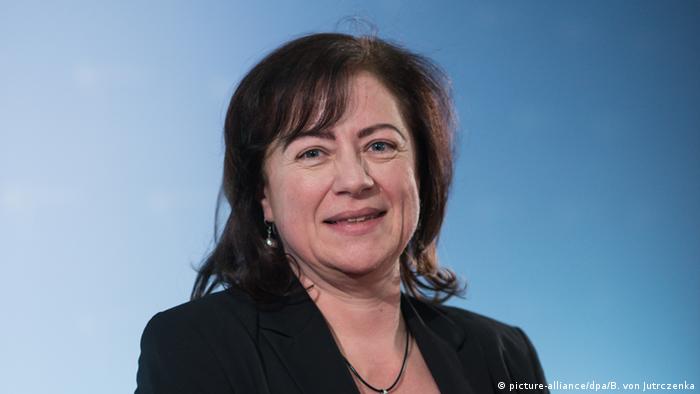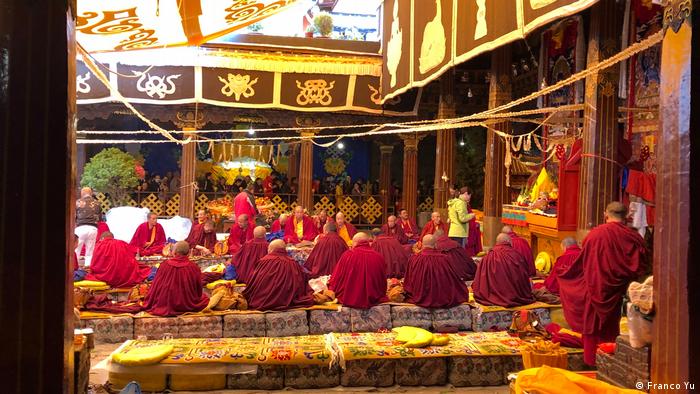At the recent human rights dialogue, there had been “significant differences” between Germany and China, according to human rights Bärbel charge Kofler. A positive was that the dialogue will continue.

Deutsche Welle: What were the highlights of the German-Chinese human rights dialogue?
Bärbel Kofler: We have had a detailed discussion on a number of fundamental human rights issues. It was about the universality of human rights or the importance of civil, political as well as economic and social human rights. As I have expressed in the run-up to great concern about the situation of the Uighurs in Xinjiang, was the discussion on this topic a focus of this year’s human rights dialogue.
And since the dialogue in Lhasa took place and the situation in Tibet is similar to worrying, was also discussed Tibet very extensively. In the context of these two priorities, I have some individual cases of concern, and the circumcision of the press and freedom of expression, freedom of religion, freedom of Assembly and Demonstration freedom, or the part raised by the civil society, the death penalty and the limited access for foreign journalists and the special Rapporteur of the United Nations.
I am convinced that one risks by repressive measures only in a climate in which conflicts peacefully and fairly resolved, and then escalate.
Video 03:15 live Now 03:15 Min. 
Cultural genocide in China?
Send Facebook Twitter google+ Tumblr VZ Mr. Wong Xing Newsvine Digg
Permalink https://p.dw.com/p/37mKW
Uighurs-bearing: Cultural genocide in China?
The Chinese side on human rights issues on the agenda?
Yes, the Chinese side has, in particular, interest in cooperation, including in the UN human rights Council in Geneva, in the area of economic and social rights is shown. In a Generation, hundreds of millions made in China to make the leap out of poverty. However, not all can benefit from economic development. I just think of the migrant workers and ethnic minorities.
Although the Chinese government has, in principle, to the human rights Council is known, however, it is, in my view, highly problematic, that China sees a “hierarchy” of human rights: first, the economic rights were, and to civil and political liberties one could take care of at a later date. We can’t support it, of course, human rights are universal and indivisible, they apply to all equally, since there is no hierarchy!
How would you assess the willingness of the Chinese side to talk about human rights issues?
In the past year, the dialogue had failed because the Chinese side, public Statements by German government officials to the people approves rights situation in China. We have therefore endeavoured, in a long time, the resumption of Dialogue. The Chinese side would like to speak to, as mentioned, rather about cooperation in the field of economic rights. Through internal developments, you don’t want to actually speak, she holds questions for unacceptable interference.
I have therefore made it clear how important it is to deal with critical questions from the outside. We understand this as an important corrective.
Nevertheless, we were able to speak ultimately about a lot of topics in detail, about Xinjiang, for example, almost two hours. The answers followed the well-known Narrative, for example, the above-mentioned “hierarchy” within the human rights. The Chinese side has led the talks to hard in the thing, but in a friendly atmosphere.
It is important to me that we are all of different opinions, and Yes, the differences were again very clearly – with each other in conversation. In the coming year we want to continue the dialogue, then in Germany, the Chinese side has known in principle. The I read first of all as a good sign.
Video 12:04 view Now live 12:04 Min. 
Reporter Harassed: China and its Muslims
Send Facebook Twitter google+ Tumblr VZ Mr. Wong Xing Newsvine Digg
Permalink https://p.dw.com/p/34u2v
Reporter Harassed: China and its Muslims
You wanted to travel to Xinjiang to make a picture of the situation there. This has allowed the Chinese side. You have been asked to visit at a later date in view?
We have long urged that my Delegation and I can travel in the framework of the regional visit this year to Xinjiang. That was most important to me, however, was not permitted. I urge now, on an early visit in the coming year.
The Chinese side does not indicate that it was in the Camps in Xinjiang to “re-education camp,” but “vocational schools”. The members of the Uighur minority settled there voluntarily. You would have access to family and other contacts. In addition, you have with a degree have better career opportunities. The number of “trainees” was also very low.
However, one could not explain why the Chinese leadership was disputed until the end of October, the existence of the camp and up to now, no visits by independent observers. The official Version of China is also in marked contrast to the Reports submitted by us human rights organizations and exiled Uyghurs.
Here is the speech, which would be indoctrinated with no outside contact in Camps of about a Million people. There are also reports about part of the most serious abuse. In the process, it remains often unclear, the criteria according to which the internment is made. A judicial Review is not possible.

A Buddhist monastery in Tibet
The this time dialogue took place in Tibet. They see it as a symbolic choice of venue?
After a trip to Xinjiang was not approved, we have accepted the offer to travel to Tibet. To reach Tibet, worrying reports to me; to Tibet, the access – it was confirmed to me on my trip several times – is extremely limited. Also, European diplomats can’t travel to Tibet. In this respect, I felt the invitation as a positive Signal. I was encouraged, therefore, but also at every opportunity to show greater openness and transparency, and to let foreign visitors, whether scientists, journalists, political delegations or tourists to Tibet.
You could learn something about the situation in Tibet?
I had expressed the desire to go to the country and to visit, for example, a prison, in the hope to learn a little more about the true conditions on the ground. Ultimately, it was suggested to us, a number of cultural goods, a place of religious pilgrimage, to visit a school, and a former farmer’s family.
This program should certainly indicate normality and the success of the economic development policy of China. Nevertheless, everything was, of course, from the Chinese side organized and fully escorted. In this respect, the insight into the local conditions was very limited.
The Interview was conducted by Hans Scion.
Bärbel Kofler is a member of the German Bundestag and since 2016, the Federal government Commissioner for human rights policy and Humanitarian aid.

